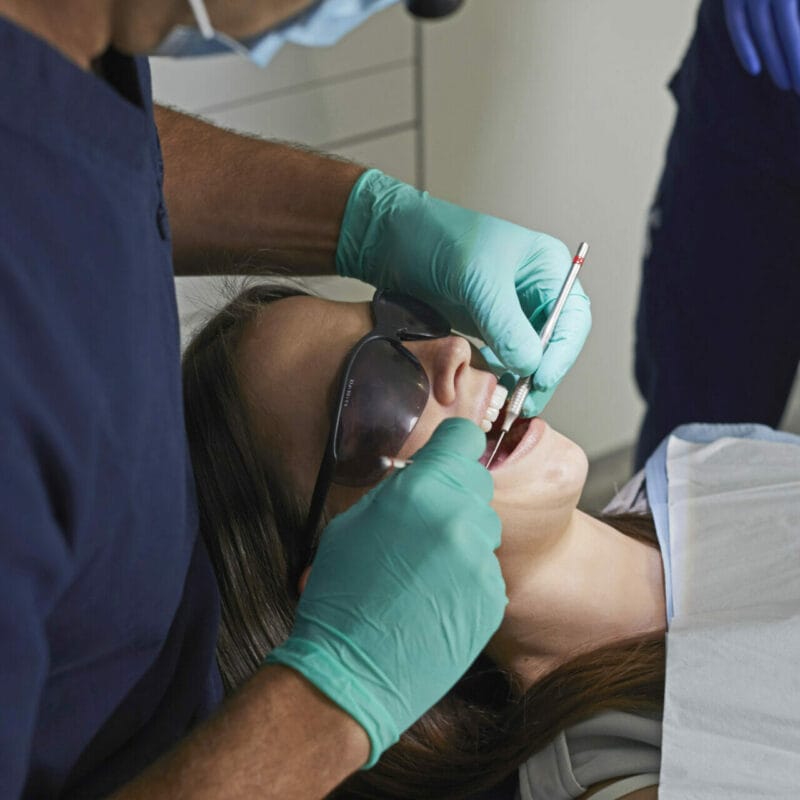
If you or someone you know is experiencing a dental emergency, it is essential to act quickly to alleviate pain and prevent further complications.
Whether it is a sudden toothache, a knocked-out tooth, or a broken crown, we are here to provide prompt and compassionate care. Our experienced team of dentists is well-equipped to handle a wide range of dental emergencies, ensuring that you get the relief and treatment you need quickly and as much as comfort as possible.
Don’t wait – contact us as soon as possible, and we will get you back to smiling in no time.
During a dental emergency appointment, the dentist’s primary goal is to address the immediate issue causing pain or discomfort and provide the necessary treatment to alleviate the problem. Here is what typically happens during a dental emergency appointment:
Patient Assessment: The appointment begins with a thorough evaluation of the patient’s dental condition. The dentist will ask the patient about their symptoms, how the emergency occurred, and if there is any relevant medical history.
Pain Relief: If the patient is in pain, the dentist will take steps to provide immediate relief. This may include administering local anesthesia to numb the affected area or prescribing pain medication.
Diagnostic Tests: The dentist may use X-rays or other diagnostic tools to assess the extent of the dental emergency. This helps in determining the most appropriate treatment.
Treatment Plan: Based on the assessment and diagnostic findings, the dentist will discuss the treatment options with the patient. They will explain the pros and cons of each option and provide recommendations.
Emergency Treatment: The dentist will initiate the necessary emergency treatment, which could include:
Tooth Repair: Broken or chipped teeth may be repaired with dental bonding, fillings, or dental crowns.
Prescription Medications: The dentist may prescribe antibiotics or other medications to treat infections or manage pain.
Extirpation: In cases of severe infection or abscess an extirpation may be performed to remove the infected or damaged inner part of a tooth, called the pulp. Further appointments are required to complete this treatment.
Repositioning of Dislodged Teeth: If a tooth has been partially knocked out (luxated), the dentist may reposition it and secure it in place.
Suturing: For severe oral injuries, sutures may be required to close wounds and promote healing.
Tooth Extraction: If a tooth is severely damaged or cannot be saved, it may need to be extracted.
Post-Treatment Instructions: After performing the emergency treatment, the dentist will provide the patient with clear instructions on how to care for their dental issue at home and what to expect in terms of recovery.
Follow-Up Appointments: Depending on the nature of the emergency, the dentist may schedule follow-up appointments to complete or monitor the patient’s progress and ensure that the issue is resolving properly.
It’s important to note that the specific procedures and steps involved in a dental emergency appointment can vary widely based on the nature and severity of the emergency. Dentists prioritize providing immediate relief and stabilizing the situation before planning for long-term dental care if needed. Patients are encouraged to follow up with their regular dentist for comprehensive dental care after the emergency has been addressed.